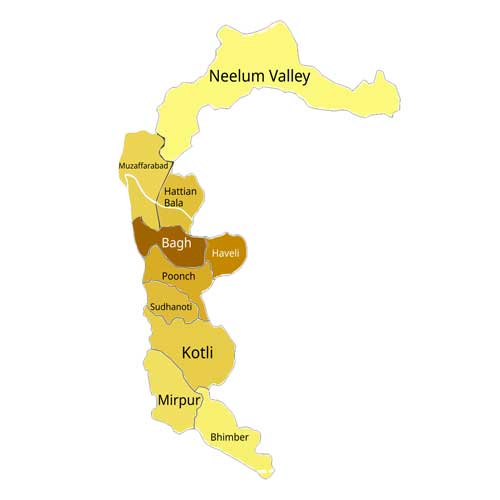Daycare costs in Azad Jammu and Kashmir (AJK) show significant variation, reflecting urbanization levels and economic disparities across the region. In urban centers like Muzaffarabad, daycare costs range between PKR 7,000 and PKR 12,000 per month for infants and toddlers. Meanwhile, in rural areas, services are less common and generally more affordable, averaging PKR 4,000 to PKR 7,000. These differences highlight the challenges of providing consistent childcare services in a geographically diverse and semi-autonomous region like AJK.

The cost of daycare in Azad Jammu and Kashmir is shaped by various factors:
These factors collectively influence daycare costs and service availability in AJK.
The daycare landscape in Azad Jammu and Kashmir includes several critical components:
Addressing gaps in these components is crucial for ensuring equitable access to daycare services in AJK.
In Azad Jammu and Kashmir, government policies play a limited but essential role in shaping daycare services:
Strengthening these policies and their enforcement can enhance the quality and accessibility of daycare services in the region.
Daycare costs in Azad Jammu and Kashmir vary significantly by region:
These regional differences underscore the need for tailored approaches to childcare provision across AJK.
The daycare landscape in Azad Jammu and Kashmir is marked by stark regional disparities influenced by urbanization, staffing challenges, and infrastructure limitations. While urban centers like Muzaffarabad offer higher-quality services at a premium, rural areas struggle with availability. Addressing these challenges through targeted policies and community participation is essential for ensuring accessible, affordable childcare across the region.